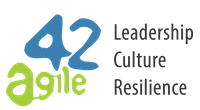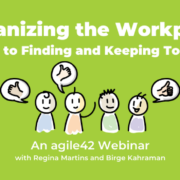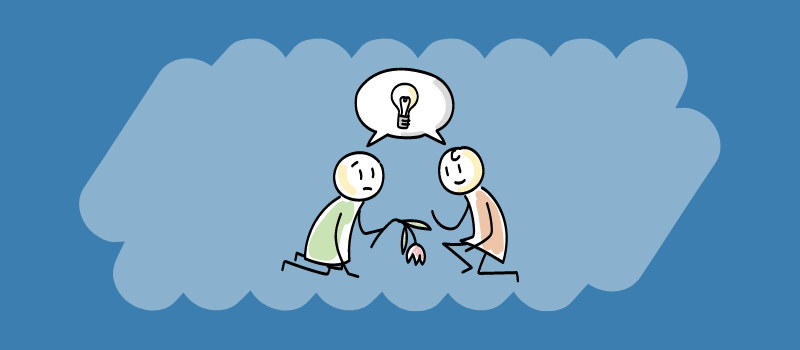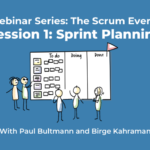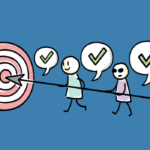How Agile Transformation Makes the Workplace Better
Rowan Bunning, in an interview with Yves Hanoulle, said, “…the agile movement in software is part of a larger movement towards more humane and dynamic workplaces in the 21st century.” Agile organizations allows for more flexibility, freedom, and employee satisfaction. In this blog, we’ll explore what an Agile work environment is, and how it contributes to this global trend of more “humane and dynamic workplaces.”
What is Agile?
There are many methodologies, frameworks, and tools that are used in an Agile work environment, such as Scrum and Kanban. These tools and methodologies all form part of Agile, but ultimately Agile is a mindset. What encapsulates the Agile mindset is the Agile Manifesto, a document that sets out the key principles and values behind agile. It aims to help development teams work more efficiently.
What are the four core principles of agile?
The four values stated in the Agile Manifesto include:
- Individuals and interactions over tools;
- Working software over comprehensive documentation;
- Customer collaboration over contract negotiation; and
- Responding to change over following a plan.
These values set the scene for more agile, humane, and dynamic work environments. Moreover, it is these values that are transforming the workplace.
How does Agile make the workplace better?
Agile helps teams take responsibility
One of the principles of the Agile Manifesto says, “The best architectures, requirements, and designs emerge from self-organizing teams.” Self-organizing teams choose how they will execute the work, so team members feel passionate and confident about their work. Simultaneously, teams have more responsibility. The ability to self-organize allows for shared responsibility and ownership across the team.
It helps teams learn and grow
Agile is iterative, and this approach extends to how teams operate. Within this mindset, teams have the opportunity to continuously evolve based on their decision-making capabilities. This gives people the license to think and feel the way they want, knowing that they have the opportunity to fail safely. In Agile environments, there is always room to inspect, adapt and grow.

Photo by RF._.studio from Pexels
It improves communication and collaboration
The Agile Manifesto talks about individuals over interactions, and this places great importance on teamwork. Agile teams focus on frequent communication and understand that they can accomplish more when they rely on each other. The smaller, cross-functional, and multi-disciplinary nature of Agile teams ensures that everyone is engaged when working towards a goal. These tight-knit structures allow for more innovative and quicker solutions while making the team feel more connected.
It fosters freedom to experiment and be creative
Agile teams are focused, flexible, iterative, and support one another. This combination creates the ideal environment for individuals to be creative and explore their ideas. Every experience is an experiment towards learning which consequently allows people to grow. The freedom, ability to self-organize, and flexibility encourage innovation to happen in a faster way.
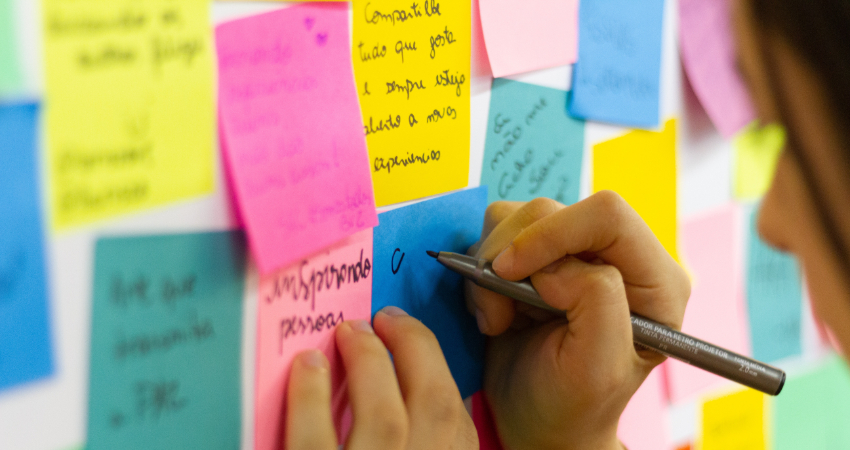
Photo by Bruno Bueno from Pexels
The leadership style focuses on removing roadblocks
According to Wikipedia, Agile leaders help self-organized development teams by “boosting adaptiveness in dynamic and complex business environments”. Agile leaders help people and teams to meet performance expectations and customer demands. This involves enabling self-organization, explorative solutions to problem-solving, and giving decision making discretion. Ultimately, these leaders need to remove any roadblocks that may obstruct a team’s path to success. Middle managers are removed which gives the team more freedom to make their own decisions and to self-organize according to their capabilities. This decentralized power focuses on the team’s ability to make effective decisions quickly, and as a result, they feel more productive and empowered.

Photo by Ian DeLashmutt on Unsplash
It reduces stress
In Agile, items are prioritized according to a well-defined product backlog which gives your team a clear direction on what to work on next. In more traditional workplaces, people stick to a strict plan and change can be stressful. Yet in Agile environments, changes in plans can be accommodated and taken in your stride, without throwing the team off course. This builds resilience and these factors contribute to the team’s optimism, effectiveness, and perceived control.
It makes teams more adaptable
According to an article by Forbes, organizations that were able to adapt the quickest had self-organizing teams that were autonomous, transparent, cross-functional, and decisive. Agile teams can prepare for the future – no matter how uncertain it may be – by being robust and ready for change. This makes teams more able to move with the times, especially when faced with unpredictable factors such as a pandemic or the great resignation.

Photo by Pixabay from Pexels
It fosters transparency in the workplace
Transparency and openness are fundamental to Agile organizations. For teams to reach their goals, they must have a clear and shared understanding of the task at hand. Transparency can be fostered through tools, communication, channels and techniques so that every aspect of the work being done is available to the whole team at any given time.
It makes teams feel trusted
Agile work environments are built upon trust, and this can be revolutionary for workplaces, especially when working remotely. There is a deep-seated level of trust that is reinforced through self-organizing teams, non-intrusive leadership styles, and transparency. These practices leave teams feeling empowered and give them a greater sense of responsibility. There’s no feeling of being micromanaged and this is highly motivating for both teams and individuals. It also means that people take more responsibility for and pride in their work.
How to introduce Agile Transformation at your organization
Many companies have started to adopt a more Agile mindset and see the benefits extend beyond delivering faster and more innovative solutions. agile42 offers a complete suite of solutions, from online professional development short courses to live Scrum training. Our coaches can also work with you to co-create bespoke enterprise learning solutions, or you can get in touch to find out about our agile coaching services.
